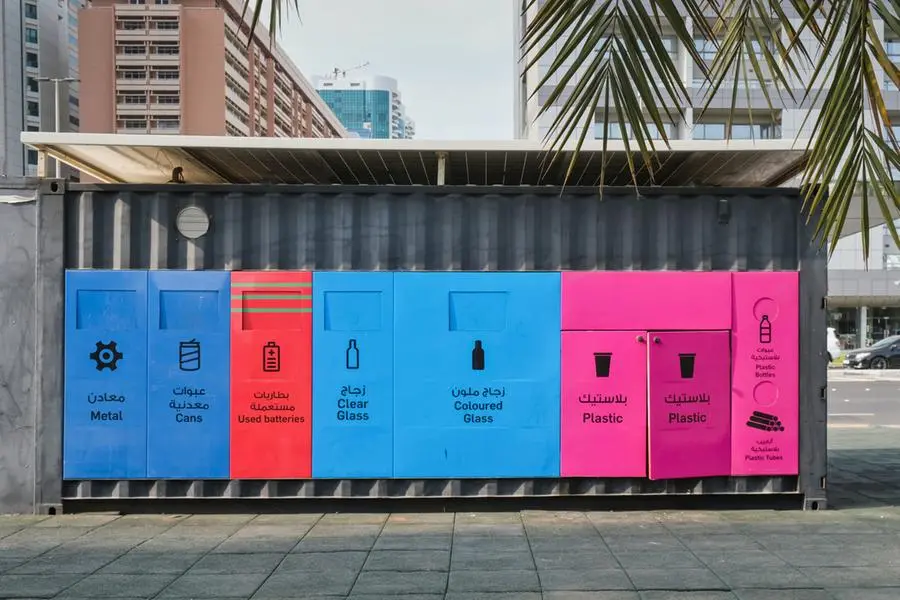PHOTO
Bahrain and other GCC countries should put in place effective waste management policies and practices to reduce environmental impact, according to a study by a local think tank.
The report titled ‘Analysis of International Best Practices in Effective Resource Management with Reflections on Arabian Gulf Countries’, published by the Bahrain Centre for Strategic, International and Energy Studies (Derasat)’s Sabeka Ismaeel, states that despite growing interest in sustainable practices, GCC countries currently trail behind developed nations in waste management.
It investigates the vital role of effective policies in reducing environmental footprint and combating climate change.
Not many landfills in the region have gas capture wells, the report says, with high leakages from dumping grounds, low recycling rates and high per capita waste generation adding to the concern of environmentalists.
Methane, a powerful greenhouse gas emitted from landfills, is multiple times more effective than carbon dioxide at trapping heat in the atmosphere, which contributes to climate change. The gas can be captured, converted and used as a renewable energy resource using modern technologies, which helps reduce odours and prevents it from leaking into the atmosphere.
“Official statistics indicate a continuous increase in waste generation across GCC countries, averaging 40.1 per cent between 2017 and 2022,” the study says.
“This is further exacerbated by the region’s robust economic rebound following the Covid-19 pandemic.
“Across the six countries, the majority of municipal and industrial waste ends up in landfills with low adherence to environmental standards.
“Certain waste streams pose key challenges for GCC countries, including food waste and industrial waste resulting from the energy, mining, and transportation sectors.”
GCC countries have recently demonstrated a growing inclination towards addressing these challenges and transitioning to a circular economy. Various initiatives have been announced across the six countries targeting different stages of waste management.
Bahrain has announced plans to build a waste-to-energy plant by 2026.
Saudi Arabia introduced changes in waste governance through amendments and established dedicated authorities such as the National Centre for Waste Management and the National Centre for Environmental Compliance in 2023.
In 2018, the UAE passed resolutions to promote integrated waste management while Qatar launched the Integrated National Solid Waste Management Programme in 2022.
Kuwait finalised the National Strategy for Integrated Waste Management 2040 in May, while Oman has updated legislation over the past few years to increase environmental and fiscal sustainability.
“These demonstrate the significant efforts dedicated by GCC countries towards achieving effective waste management in line with broader environmental and economic visions,” the study pointed out, adding that, however, more needs to be done. “These efforts are directed towards reforming the sector, which lacks demand-side regulations,” the report added.
“Currently, several waste management companies operate across the GCC countries, mainly covering waste collection and treatment.
“However, assessments from the World Bank indicate that the industry is not yet well established, requiring the supplementation of policies to change consumer behaviours.”
To address challenges resulting from public behaviours, such as high waste volumes and lack of segregation at source, the study recommends GCC countries to adopt best practices to accelerate their progress towards sustainability.
Despite being behind other nations, the region can benefit from a late mover advantage by learning from the progress of pioneering countries, with a number of recommendations being made to ensure effective waste management in the future.
“Establish clear definitions, standards and centralised frameworks and empower policy implementers with higher flexibility and stronger monitoring to enhance their impact,” said the study.
“Invest in emerging technologies and leverage digital systems for effective governance.
“Provide adequate treatment solutions and effective waste collection systems and strengthen civic engagement through dedicated initiatives.
“Additionally, foster a stable market for waste management through policy enhancements and gradual implementation.
“Finally, implement economic incentives to minimise waste generation while focusing on addressing waste generation from the source.
“By adopting a holistic approach, optimising human and financial resources and fostering a culture of environmental stewardship, GCC countries can advance in sustainable waste management and promote a circular economy.”
Copyright 2022 Al Hilal Publishing and Marketing Group Provided by SyndiGate Media Inc. (Syndigate.info).




















